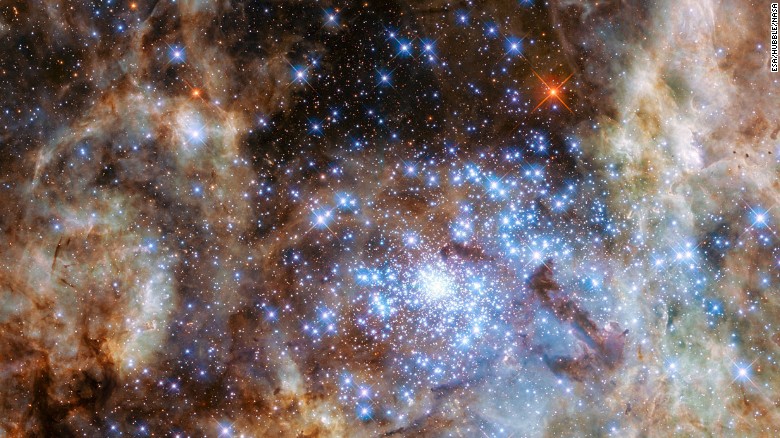
There are monsters in the universe.
That’s the description of stars photographed by the Hubble Space Telescope, which took a shot of the R136 star cluster and revealed nine stars more than 100 times the mass of the sun, according to a statement from spacetelescope.org.
Hubble is operated by the European Space Agency and NASA.
One of the stars is R136a1, the most massive star known in the universe. Even the lesser stars in R136 are huge: “Dozens” of them exceed 50 sun masses, said the release.
They’re also incredibly bright, with the nine largest stars together outshining the sun by a factor of 30 million.
R136 is about 170,000 light years away, in the Tarantula Nebula within the Large Magellanic Cloud. To give an idea of this distance, Alpha Centauri — the closest star system to Earth — is about 4.3 light years away, or about 25 trillion miles.
The discovery offers more information on star formation — and, in terms of the cosmic scale, just in time. Massive stars live for only a few million years before going supernova.
Paul Crowther, a University of Sheffield astrophysicist and lead author of the study, praised Hubble for the revelations.
“Once again, our work demonstrates that, despite being in orbit for over 25 years, there are some areas of science for which Hubble is still uniquely capable,” he said.
The results will be published in the Monthly Notices of the Royal Astronomical Society.
As reported by CNN
